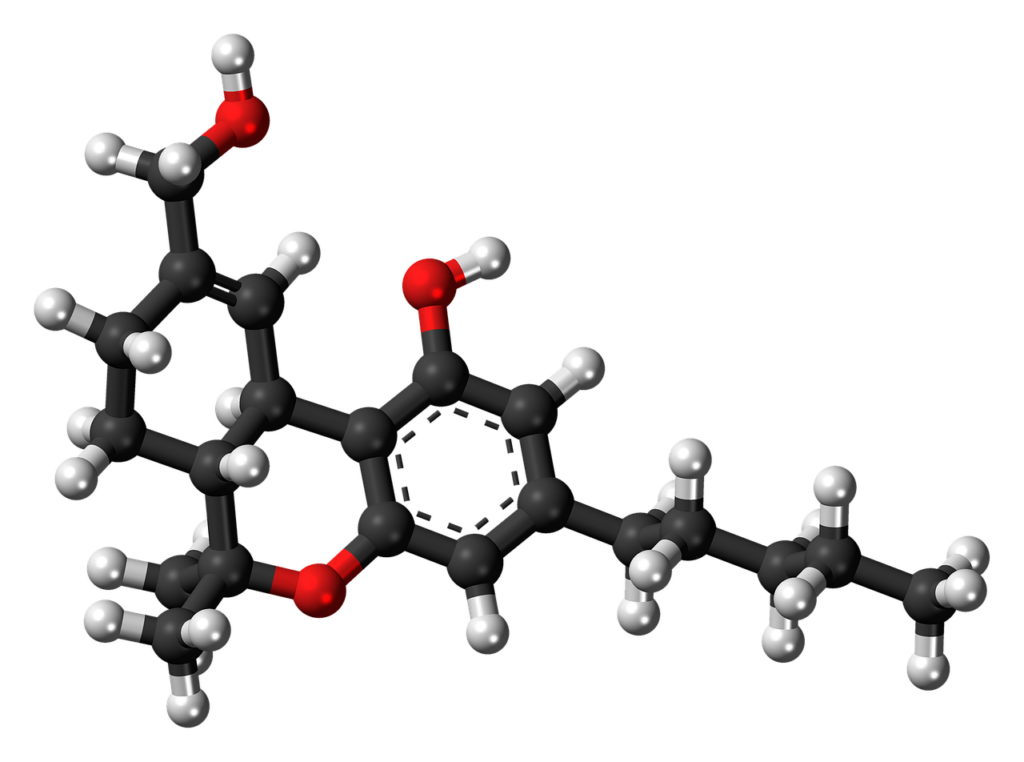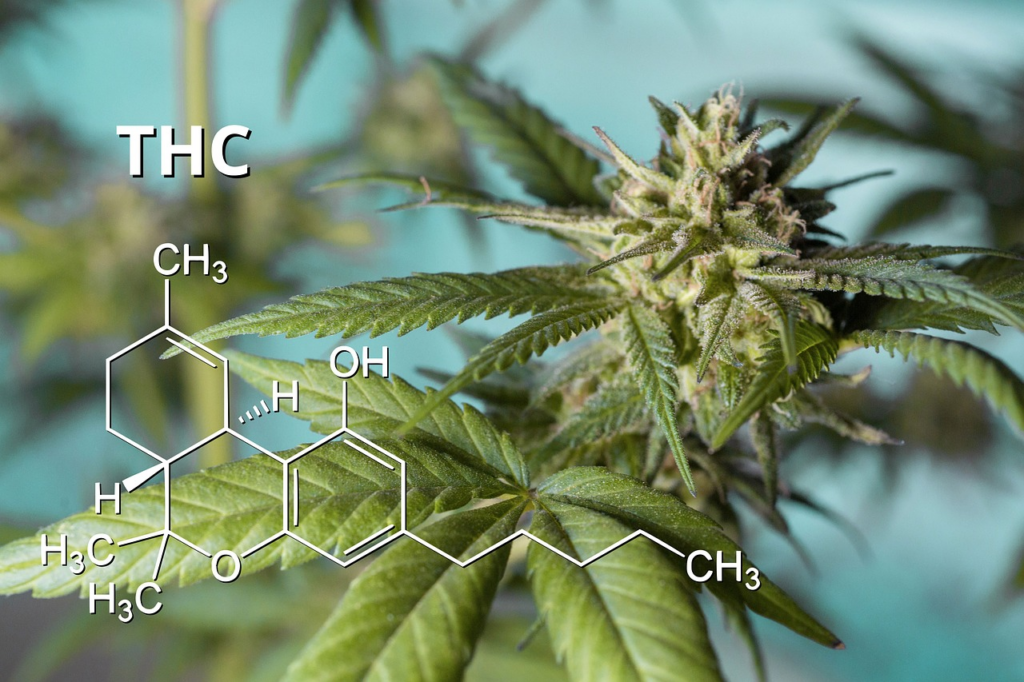
THC, also known as tetrahydrocannabinol, is the most well-known and most abundant psychoactive compound found in the cannabis plant. THC is responsible for producing the euphoric and psychoactive effects commonly associated with marijuana use. Its chemical structure is similar to the endocannabinoids produced naturally by the human body, which are involved in regulating a variety of physiological processes.
Since its discovery in the 1960s, THC has been the subject of extensive research, particularly in the areas of medicinal and therapeutic use. It has been found to have a wide range of potential medical applications, including pain relief, nausea and vomiting reduction, appetite stimulation, and reduction of muscle spasms in patients with multiple sclerosis.
THC is just one of many cannabinoids found in the cannabis plant that can have a range of effects on the body and mind. While it can offer therapeutic benefits for those with chronic pain and certain medical conditions, it can also have adverse health effects, particularly when used in excess or by those who are sensitive to its effects.
The legal status of THC-containing products varies greatly by jurisdiction. While some countries and states have legalized both medical and recreational use of marijuana, others have strict laws prohibiting its use or only allow it for medical purposes with a prescription. It is important to research and understand the laws in your area before using any THC-containing products.
Read on to learn about what exactly THC is as well as the different types that exist and their individual benefits.

The cannabis plant is known for containing a diverse array of chemical compounds, including cannabinoids. These compounds interact with the body's endocannabinoid system, producing various physiological effects. THC is one such cannabinoid, and it has been the subject of extensive research due to its psychoactive properties.
People often consume THC through smoking or vaporizing cannabis, as well as ingesting cannabis-infused products like edibles or tinctures. The effects of THC on the body can vary depending on several factors, including the method of consumption, dosage, and individual tolerance.
It is important to note that while THC can offer therapeutic benefits, it can also pose risks, particularly when used in excess or by individuals who are sensitive to its effects. As such, the legal status of THC-containing products varies by jurisdiction, with some areas legalizing both medical and recreational use, while others maintain strict prohibitions.

The effects of cannabis can vary widely depending on factors such as dosage, method of consumption, and individual tolerance. It is important to be aware of the potential adverse events related to THC use, particularly in cases of cannabis use disorder or when consumed in excess.
Medical cannabis laws in some jurisdictions allow for the use of cannabis-derived products containing THC to treat conditions such as neuropathic pain and abdominal pain. However, it is important for healthcare providers to be aware of the potential adverse effects of THC and to monitor their patients accordingly.
However, it is important to note that excessive use or misuse of THC can lead to negative outcomes. Those with cannabis use disorder or those who consume THC in excess are more likely to experience adverse events such as anxiety, paranoia, hallucinations, and impaired cognitive function. Therefore, responsible use and adherence to recommended dosages are critical to avoid any potential negative consequences.

If you're new to the world of cannabis, it can be overwhelming to understand the different types of THC available. THC, or tetrahydrocannabinol, is the primary psychoactive compound found in cannabis plants that produces the "high" associated with marijuana use. But did you know that there are several different types of THC?
Delta-9 THC is the most talked-about variation of THC found in cannabis plants. It is abundant in both male and female plants, but more concentrated in the latter. This psychoactive compound binds with CB1 receptors in the brain and nervous system, resulting in altered mental and physical states such as disassociation from time, impaired memory, and relaxation of the body.
Despite its psychoactive properties, Delta-9 THC is being researched for its potential therapeutic benefits. Some of these health benefits include its ability to promote sleep, alleviate mood swings, reduce discomfort, and alleviate nausea or vomiting. Delta-9 THC is also known to stimulate appetite, making it helpful for those dealing with low appetite.
Delta-8 THC, a less abundant form of THC found in the cannabis plant, is gaining popularity in the cannabis industry. This compound is a double bond isomer of Delta-9 THC, which means that they have the same elements and atoms, but are structurally distinct. Delta-8 THC forms when Delta-9 THC ages and is exposed to oxidation.
Although Delta-8 THC is believed to produce a more clear-headed and energetic effect compared to Delta-9 THC, it is still considered to have similar psychoactive effects. Delta-8 THC interacts with the CB1 and CB2 cannabinoid receptors in the body and has been shown to have several potential benefits, such as pain relief and anxiety reduction.
However, due to its low concentration in the cannabis plant, most commercially available Delta-8 products are made by converting Delta-9 THC or cannabidiol (CBD) chemically. As a result, there are limited studies on the effects and safety of Delta-8 THC products. It is important to note that although Delta-8 THC is federally legal, the sale of Delta-8 products is not regulated by the FDA, which may pose a risk for consumers.
Delta-10 THC is a lesser-known cannabinoid that shares similar chemical properties as THC but is arranged differently, resulting in distinct effects. Unlike delta-9 THC, delta-10 THC occurs in extremely low amounts in the cannabis plant, making it difficult to consume high doses directly. Due to its rarity, most delta-10 products are synthetically developed in labs.
Delta-10 THC is classified as a minor cannabinoid, similar to delta-8 THC, and researchers have conducted little research on its effects on the body. As a result, the potential benefits and adverse effects of consuming delta-10 THC are still largely unknown. Further research is necessary to fully understand the potential of delta-10 THC as a therapeutic compound.
THCA is a type of THC that does not produce any mind-altering effects and is usually found in the stems, leaves, and flowers of the cannabis plant. Unlike other forms of THC, THCA's structure is not suited for CB1 receptors in the nervous system, which are responsible for psychoactive effects.
However, THCA can be transformed into other types of THC, such as THCV, Delta-8 THC, and Delta-9 THC, through a process that involves applying heat. This transforms the chemical composition of THCA molecules and makes them suitable to fit into the CB1 receptors in the body, producing therapeutic benefits.
Studies suggest that THCA may help alleviate conditions such as nausea and loss of appetite, epilepsy, arthritis, and inflammation in muscles, and diabetes. While more research is needed to fully understand THCA's therapeutic potential, it is a promising area of study in the cannabis industry.
THCV is a lesser-known type of THC that is produced through the breakdown of THCA during the process of decarboxylation, which occurs when medical marijuana is dried and vaporized. Although it is not well-known, it is gaining popularity for its positive effects.
Research suggests that THCV has a shorter chain of molecules and lower interaction with receptors, meaning that it does not produce mind-altering effects in low doses. However, higher doses can produce a clear and stimulating high. THCV interacts with the CB1 receptors in the body, but the effects are short-lived compared to other THC types. Unlike other types of THC, THCV is an appetite suppressant and does not stimulate the appetite.
Studies show that THCV may offer benefits such as regulating blood sugar and insulin resistance, neurological therapeutics for epilepsy and Alzheimer's, promoting bone development and growth, and reducing chronic pain and inflammation.
THCP, or tetrahydrocannabiphorol, is a newly discovered cannabinoid that has garnered attention due to its unique properties. It is believed to have 33 times the binding affinity for CB1 receptors as delta-9 THC, resulting in a more intense and euphoric effect.
The length of the side chains in a compound determines its ability to bind with receptors, and THCP has a seven-link side chain, which is the longest of any naturally occurring cannabis compound. This makes THCP structurally similar to delta-9 THC, but with a different arrangement of elements.
Currently, THCP exists in a legal grey area, much like delta-8 and delta-10 THC. There is a need for further research to fully understand the potential benefits of this compound.
THC-O acetate, also known as THC-O, is a synthetic cannabinoid derived from hemp. One of its primary advantages is that it is created from federally legal hemp, in contrast to THC, which is only legal in some states. However, the production of THC-O-acetate involves using a highly flammable chemical called acetic anhydride. Like THCP and Delta-10 THC, THC-O is one of the least studied THC analogs, so its potential advantages and side effects have yet to be discovered.

The sale of cannabis and access to cannabis-based products, including cannabinoid products, cannabis oil, and cannabis accessories, are subject to various regulations and restrictions. It is important to understand the definition of marijuana in your jurisdiction and to comply with all applicable laws and regulations.
The National Institute on Drug Abuse has compiled a list of medical conditions for which cannabis-based products, including those containing THC, may be helpful. However, it is important to consult with a healthcare provider before using these products and to be aware of the potential adverse effects.
In conclusion, choosing the right THC product requires careful consideration of several factors, including personal preference, tolerance, and intended use. With the vast array of products available, it can be overwhelming to make a decision. However, taking the time to research and ask for recommendations can make the process easier and ensure a more enjoyable experience.
DC Collective is one example of a reputable dispensary that offers a wide selection of THC products and knowledgeable staff to assist customers in selecting the right product for their needs. By following the tips outlined in this guide and seeking guidance from experts, consumers can make informed decisions and have a positive experience with THC products.

⚠️WARNING: Products sold on this site can expose you to chemicals including marijuana smoke, which are known to the State of California to cause cancer. For more information, go to http://www.P65Warnings.ca.gov
License #C12-0000022-LIC HOURS OF OPERATION: Mon-Thu 7am – 9pm
Fri-Sat 7am – 10pm
Sun 9am – 8pm